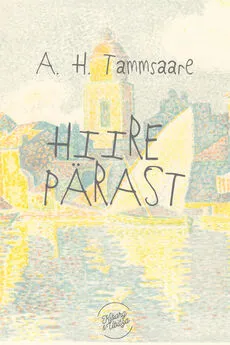W. Ainsworth - Rookwood
- Название:Rookwood
- Автор:
- Жанр:
- Издательство:неизвестно
- Год:неизвестен
- ISBN:нет данных
- Рейтинг:
- Избранное:Добавить в избранное
-
Отзывы:
-
Ваша оценка:
W. Ainsworth - Rookwood краткое содержание
Rookwood - читать онлайн бесплатно полную версию (весь текст целиком)
Интервал:
Закладка:
The young Sir Reginald had attended Charles, in the character of page, during his exile; and if he could not requite the devotion of the son, by absolutely reinstating the fallen fortunes of the father, the monarch could at least accord him the fostering influence of his favour and countenance; and bestow upon him certain lucrative situations in his household, as an earnest of his good-will. And thus much he did. Remarkable for his personal attractions in youth, it is not to be wondered at, that we should find the name of Reginald Rookwood recorded in the scandalous chronicles of the day, as belonging to a cavalier of infinite address and discretion, matchless wit, and marvellous pleasantry; and eminent beyond his peers for his successes with some of the most distinguished beauties who ornamented that brilliant and voluptuous Court.
A career of elegant dissipation ended in matrimony. His first match was unpropitious. Foiled in his attempts upon the chastity of a lady of great beauty and high honour, he was rash enough to marry her; rash, we say, for from that fatal hour all became as darkness; the curtain fell upon the comedy of his life, to rise to tragic horrors. When passion subsided, repentance awoke, and he became anxious for deliverance from the fetters he had so heedlessly imposed on himself, and on his unfortunate dame.
The hapless lady of Sir Reginald was a fair and fragile creature, floating in the eddying current of existence, and hurried to destruction as the summer gossamer is swept away by the rude breeze, and lost for ever. So beautiful, so gentle was she, that if,
Sorrow had not made
Sorrow more beautiful than Beauty's self,
it would have been difficult to say whether the charm of softness, and sweetness, was more to be admired than her faultless personal attractions. But when a tinge of melancholy came saddening and shading the once smooth and smiling brow; when tears dimmed the blue beauty of those deep and tender eyes; when hot, hectic flushes supplied the place of healthful bloom, and despair took possession of her heart, then was it seen what was the charm of Lady Rookwood, if charm that could be called, which was a saddening sight to see, and melted the beholder's soul within him. All acknowledged, that exquisite as she had been before, the sad, sweet lady was now more exquisite still.
Seven moons had waned and flown—seven bitter, tearful moons—and each day Lady Rookwood's situation claimed more soothing attention at the hand of her lord. About this time his wife's brother, whom he hated, returned from the Dutch wars. Struck with his sister's altered appearance, he readily divined the cause; indeed, all tongues were eager to proclaim it to him. Passionately attached to her, Lionel Vavasour implored an explanation of the cause of his sister's griefs. The bewildered lady answered evasively, attributing her woebegone looks to any other cause than her husband's cruelty; and pressing her brother, as he valued her peace, her affection, never to allude to the subject again. The fiery youth departed. He next sought out his brother-in-law and taxed him sharply with his inhumanity, adding threats to his upbraidings. Sir Reginald listened silently and calmly. When the other had finished, with a sarcastic obeisance, he replied, "Sir, I am much beholden for the trouble you have taken in your sister's behalf. But when she entrusted herself to my keeping, she relinquished, I conceive, all claim on your guardianship: however, I thank you, for the trouble you have taken; but, for your own sake, I would venture to caution you against a repetition of interference like the present."
"And I, sir, caution you . See that you give heed to my words, or, by the Heaven above us, I will enforce attention to them."
"You will find me, sir, as prompt at all times to defend my conduct, as I am unalterable in my purposes. Your sister is my wife. What more would you have? Were she a harlot, you should have her back and welcome. The fool is virtuous. Devise some scheme, and take her with you hence—so you rid me of her I am content."
"Rookwood, you are a villain." And Vavasour spat upon his brother's cheek.
Sir Reginald's eyes blazed. His sword started from its scabbard. "Defend yourself," he exclaimed, furiously attacking Vavasour. Pass after pass was exchanged. Fierce thrusts were made and parried. Feint and appeal, the most desperate and dexterous, were resorted to. Their swords glanced like lightning flashes. In the struggle, the blades became entangled. There was a moment's cessation. Each glanced at the other with deadly, inextinguishable hate. Both were admirable masters of the art of defence. Both were so brimful of wrath as to be regardless of consequences. They tore back their weapons. Vavasour's blade shivered. He was at the mercy of his adversary—an adversary who knew no mercy. Sir Reginald passed his rapier through his brother's body. The hilt struck against his ribs.
Sir Reginald's ire was kindled, not extinguished, by the deed he had done. Like the tiger, he had tasted blood—like the tiger he thirsted for more. He sought his home. He was greeted by his wife. Terrified by his looks, she yet summoned courage sufficient to approach him. She embraced his arm—she clasped his hand. Sir Reginald smiled. His smile was cutting as his dagger's edge.
"What ails you, sweetheart?" said he.
"I know not; your smile frightens me."
"My smile frightens you—fool! be thankful that I frown not."
"Oh! do not frown. Be gentle, my Reginald, as you were when first I knew you. Smile not so coldly, but as you did then, that I may, for one instant, dream you love me."
"Silly wench! There—I do smile."
"That smile chills me—freezes me. Oh, Reginald! could you but know what I have endured this morning on your account. My brother Lionel has been here."
"Indeed!"
"Nay, look not so. He insisted on knowing the reason of my altered appearance."
"And no doubt you made him acquainted with the cause. You told him your version of the story."
"Not a word, as I hope to live."
"A lie!"
"By my truth, no."
"A lie, I say. He avouched it to me himself."
"Impossible! He could not—would not disobey me.
Sir Reginald laughed bitterly.
"He would not, I am sure, give utterance to any scandal," continued Lady Rookwood. "You say this but to try me, do you not?—ha! what is this? Your hand is bloody. You have not harmed him? He is safe? Whose blood is this?"
"Your brother spat upon my cheek. I have washed out the stain," replied Sir Reginald, coldly.
"Then it is his," shrieked Lady Rookwood, pressing her hands shudderingly before her eyes. "Is he dead—dead?"
Sir Reginald turned away.
"Stay," she cried, exerting her feeble strength to retain him, and becoming white as ashes, "abide and hear me. You have killed me, I feel, by your unkindness. I have striven against it, but it would not avail. I am sinking fast—dying. I, who loved you, only you; yea, one beside—my brother, and you have slain him . Your hands are dripping in his blood, and I have kissed them—have clasped them. And now," continued she, with an energy that shook Sir Reginald, "I hate you—I abhor you—I renounce you—for ever! May my dying words ring in your ears on your deathbed, for that hour will come. You cannot shun that . Then think of him ! think of me !"
"Away!" interrupted Sir Reginald, endeavouring to shake her off.
"I will not away! I will cling to you—will curse you. My unborn child shall live to curse you—to requite you—to visit my wrongs on you and yours. Weak as I am, you shall not cast me off. You shall learn to fear even me ."
"I fear nothing living, much less a frantic woman."
"Fear the dead then."
"Hence! or by the God above us—"
"Never!"
There was a struggle—a blow—and the wretched lady sank, shrieking, upon the floor. Convulsions seized her. A mother's pains succeeded fierce and fast. She spoke no more, but died within the hour, giving birth to a female child.
Eleanor Rookwood became her father's idol—her father's bane. All the love he had to bestow was centred in her. She returned it not. She fled from his caresses. With all her mother's beauty, she had all her father's pride. Sir Reginald's every thought was for his daughter—for her aggrandisement. In vain. She seemed only to endure him, and while his affection waxed stronger, and entwined itself round her alone, she withered beneath his embraces as the shrub withers in the clasping folds of the parasite plant. She grew towards womanhood. Suitors thronged around her—gentle and noble ones. Sir Reginald watched them with a jealous eye. He was wealthy, powerful, high in royal favour;—and could make his own election. He did so. For the first time, Eleanor promised obedience to his wishes. They accorded with her own humour. The day was appointed. It came. But with it came not the bride. She had fled, with the humblest and meanest of the pretenders to her hand—with one upon whom Sir Reginald supposed she had not deigned to cast her eyes. He endeavoured to forget her, and, to all outward seeming, was successful in the effort. But he felt that the curse was upon him, the undying flame scorched his heart. Once and once only they met again, in France, whither she had wandered. It was a dread encounter—terrible to both; but most so to Sir Reginald. He spoke not of her afterwards.
Shortly after the death of his first wife, Sir Reginald had made proposals to a dowager of distinction, with a handsome jointure, one of his early attachments, and was, without scruple, accepted. The power of the family might then be said to be at its zenith; and but for certain untoward circumstances, and the growing influence of his enemies, Sir Reginald would have been elevated to the peerage. Like most reformed spendthrifts, he had become proportionately avaricious, and his mind seemed engrossed in accumulating wealth. In the meantime, his second wife followed her predecessor; dying, it was said, of vexation and disappointment.
The propensity to matrimony, always a distinguishing characteristic of the Rookwoods, largely displayed itself in Sir Reginald. Another dame followed—equally rich, younger, and far more beautiful than her immediate predecessor. She was a prodigious flirt, and soon set her husband at defiance. Sir Reginald did not condescend to expostulate. It was not his way. He effectually prevented any recurrence of her indiscretion. She was removed, and with her expired Sir Reginald's waning popularity. So strong was the expression of odium against him, that he thought it prudent to retire to his mansion in the country, and there altogether seclude himself. One anomaly in Sir Reginald's otherwise utterly selfish character was uncompromising devotion to the house of Stuart; and shortly after the abdication of James II, he followed that monarch to St. Germains, having previously mixed largely in secret political intrigues; and only returned from the French Court to lay his bones with those of his ancestry in the family vault at Rookwood.
| Contents |
"Sir Reginald passed his rapier through his brother's body."
CHAPTER VI
SIR PIERS ROOKWOOD
SIR Reginald died, leaving issue three children, a daughter, the before-mentioned Eleanor (who, entirely discountenanced by the family, had been seemingly forgotten by all but her father), and two sons by his third wife. Reginald, the eldest, whose military taste had early procured him the command of a company of horse, and whose politics did not coalesce with those of his sire, fell, during his father's lifetime, at Killiecrankie, under the banners of William. Piers, therefore, the second son, succeeded to the title.
Читать дальшеИнтервал:
Закладка:




![Rakot - Апостол Новой Веры. Том 1 [СИ]](/books/1061842/rakot-apostol-novoj-very-tom-1-si.webp)
![Rakot - Укуренный мир. Том 3 [СИ]](/books/1073038/rakot-ukurennyj-mir-tom-3-si.webp)




